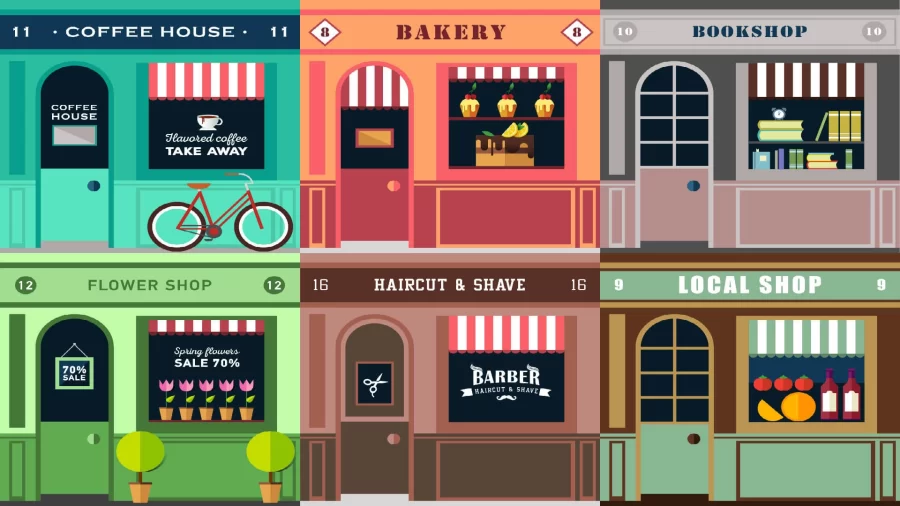Local Businesses v. Online Businesses
https://searchengineland.com/5-ways-use-consumers-want-boost-local-seo-strategy-225114
January 27, 2023
Another local business closed. Empty with no cheering customers or cashiers and precious goods wiped away from shelves. How in the world did this happen? Was it my love for online shopping that caused this tragedy? Was it the lack of employees, sales, advertisement, or something deeper within?
Online sales, shopping, and popular online businesses harm a plethora of small local businesses in communities. These online businesses heavily dominate the market and leave very little for local businesses to depend on.
Online shopping companies such as Amazon have caused a decrease in sales for small, local businesses. Amazon has conquered almost the entire online market damaging local businesses from making a profit. Many local businesses have fallen and been strangled throughout the years because of these successful online businesses.

Online purchases depletes money from local economies. If an individual were to buy food online, that money would go to the online retailer instead of the purchaser’s community. The less money that flows towards local businesses will result in financial troubles within the community. “Imagine the local economy as a bucket. If someone has 5 dollars and spends it in the local grocers, the 5 dollars stays in the bucket. But when they pay or purchase something outside of the community that money does not stay in the bucket. Purchases outside of town is like a leak in the bucket. A way to stop those five dollars from leaking out is to purchase from a local company. Doing this causes more to be in the bucket” (2002 New Economics Foundation handbook of local economics).
Additionally, online sales have less taxation on their items. Less taxation for online products influences people to shop online and avoid going to local stores. It overall harms struggling counties, towns, small cities, and states. Not every online company charges sales tax or a balanced sales tax for their items. In 2012, the state of Indiana lost $195 million in sales tax revenue to online purchases, according to the University of Tennessee(Distinct). With online sales skyrocketing, the loss of revenues from taxes have likely worsened.

However, others debate that online shopping helps those that may lack the time to shop or that it’s simplistic and allows one to make easy purchases.
Online shopping may be more convenient but consumers who shop online may lack interaction with people within the community. Shopping online does not offer the same social interaction unlike regular shopping. Shopping online is easy and convenient but individuals should try to stop interacting with a screen and interact with people. The more interaction someone has with a local business and its workers, the more connected and united that person will feel in the community.
People within their communities should take the time to know what’s around them. They need to realize the stakes that are at hand when they constantly shop and purchase at online websites. Some stores or local businesses in their areas offer the same goods and services as any other online services. Putting one’s own money into local companies, stores, and business helps the overall local economy and stops money from leaking out from the economy.







